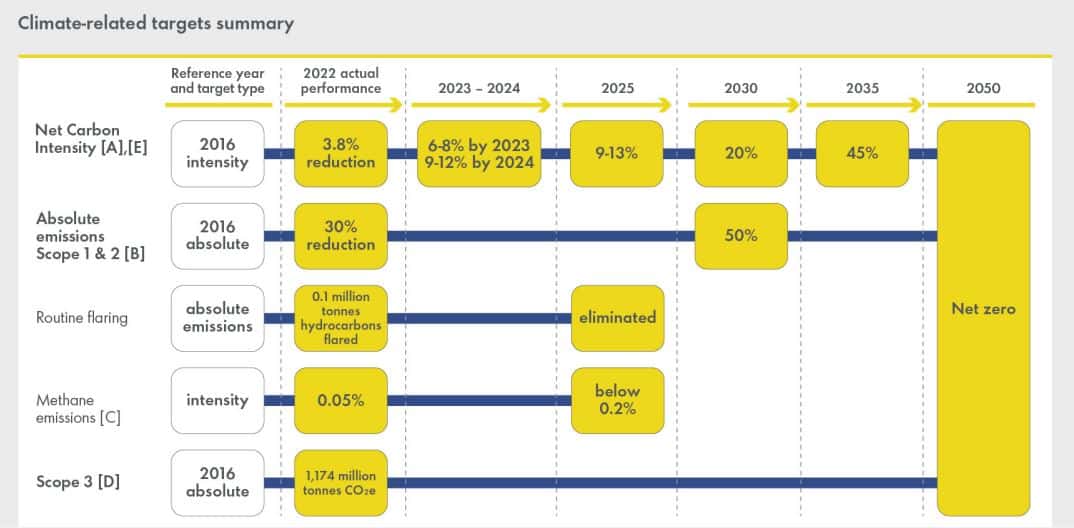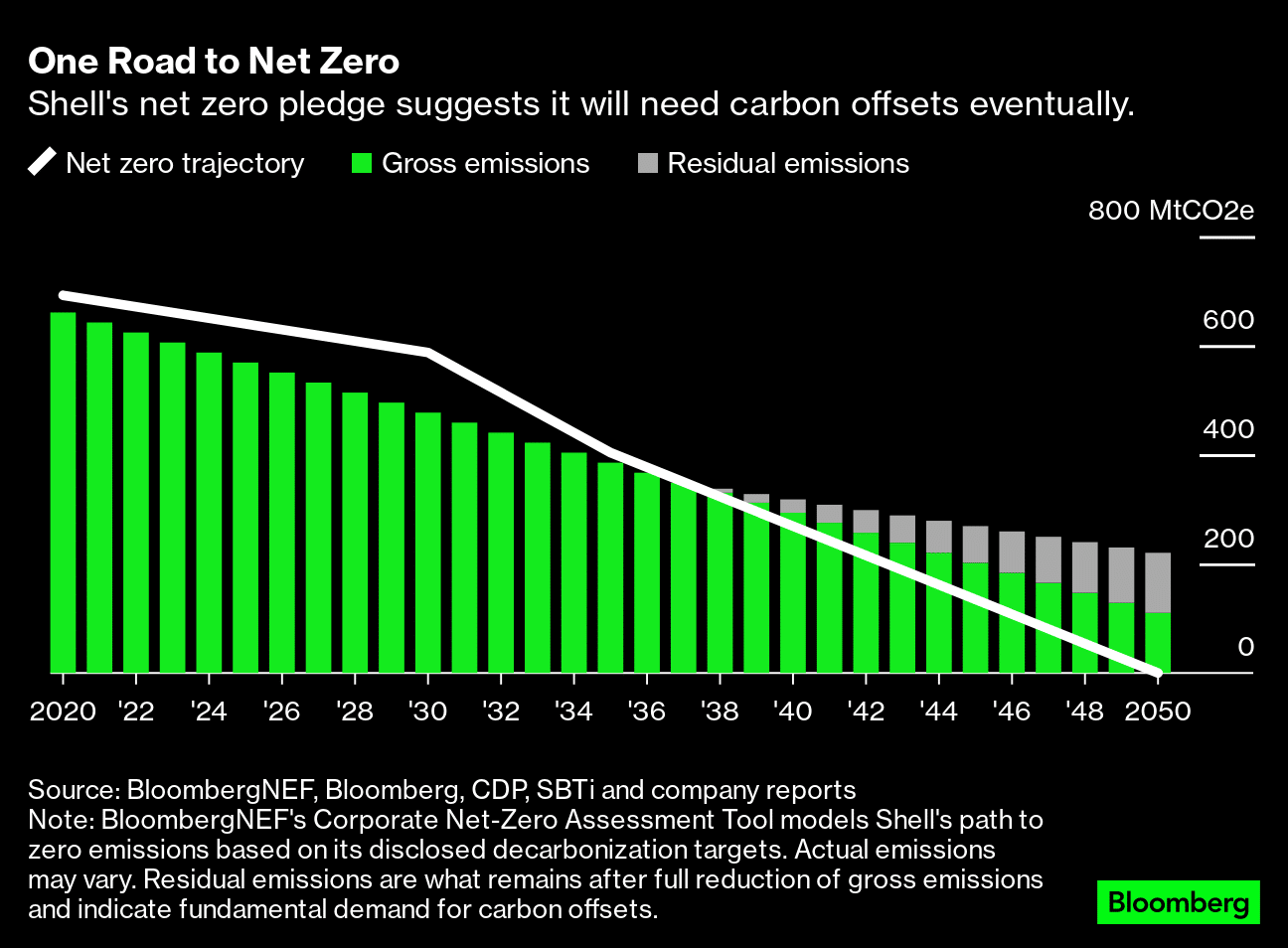Europe’s biggest oil major, Shell PLC, secretly ditched its plan to spend $100 million a year on carbon credits, which is the largest offset program among corporations, after 6 months its new chief executive officer Wael Sawan took office.
In June, Sawan announced a major shift in Shell’s strategy – to maintain its current level of oil production until 2030, not to reduce it as initially declared, while reducing costs and increasing shareholders profits.
What the CEO missed to reveal at the time is the energy giant’s plans for investing in carbon credit projects. These credits are part of Shell’s offsetting program in line with its 2050 net zero emissions goal.
Finding Carbon Offsets that Meet Quality Standards
Shell has made a commitment to cut Scope 1 and 2 emissions by 50% by 2030 and reach net zero by 2050. It managed to reduce total emissions from all scopes (Scope 1, 2, and 3) in 2022 compared to 2016 levels.
At a glance, here’s Shell’s climate target summary with actual achievements in 2022.

Originally, Shell aimed at spending $100 million each year on carbon offsets. The oil company also targeted to generate 120 million carbon credits yearly by 2030 from natural carbon sequestration projects. These targets would have offset about 10% of Shell’s carbon emissions.
But with the company’s recent revelation, they confirmed that they’re putting an end to those plans. However, the company hasn’t revealed publicly any new plans for carbon credits or how they now intend to meet their climate targets.
According to Shell, those prior goals weren’t attainable due to the lack of carbon offsets that meet its quality standards.
Carbon offsets from nature-based projects were criticized for not delivering the environmental benefits they promised to bring.
Shell’s previous intent to build a robust pipeline of carbon credits was inspired by research saying that nature-based sequestration can suck in enough carbon to limit global temperature rise. This finding and the growing pressure for corporations to reduce their carbon emissions prompted Shell to consider carbon offsets.
Meanwhile, other large companies and Shell’s oil major peers are also relying on carbon credits to offset their unabated emissions. Estimates show that the voluntary carbon market can hit $950 billion by 2037, a whopping increase from today’s $2B value.
But the Royal Dutch oil giant has been struggling to find carbon offsets that meet its stringent quality requirements.
As per Flora Ji, a veteran handling the firm’s nature-based solutions (NBS), the market didn’t put high regard to quality before. She further said that:
“The quality, integrity and responsible use of credits: these are the prerequisites to the credibility and sustainability of the carbon markets.”
Recently, key carbon standard organizations have published a fundamental framework that defines high-quality carbon credits.
Hitting Shell’s Net Zero Target
Shell is known to employ strict standards when it comes to developing and investing in nature-based climate solutions. The oil major has been supporting diverse NBS initiatives from reducing deforestation to tree planting to grasslands projects.
While Shell is a large supporter of carbon offsets, it’s not the only major player in the field. Other oil giants have also started to develop their own carbon credit projects and pipelines. Chevron, TotalEnergies, BP, Equinor, and Eni are some of the major companies investing in carbon offset credits.
However, it’s not clear if they will follow the same offsetting scale that Shell originally planned.
In comparison, French oil major TotalEnergies was able to earn less than 7 million credits last year. The company seeks to generate 45 million carbon credits by the end of the decade. That’s only about ⅓ of Shell’s obsolete offsets target.
Despite the move to ditch its carbon offsets goal, Shell remains committed to its net zero emissions target. In fact, the company’s spokesman remarked that their “sustainability and climate targets remain”.
As what Ji has also confirmed, Shell’s long-term approach to carbon reduction toward net zero follows the Science-Based Targets initiative. That means avoiding emissions first and reducing them before resorting to carbon offsets.
If Shell stays loyal to its net zero pledge, it will still need carbon offsets eventually, according to BloombergNEF analysis. The Dutch energy giant will be needing the offset credits for the residual emissions on its way to net zero.

And though it’s prioritizing its short-term goal of maximizing profits, it has yet to disclose new plans for its long-term climate targets.
This revealing news leaves a major question to many – what comes next for Shell’s carbon emission reduction strategy? Will it pivot to technological carbon removal instead? That’s what speculators have to watch out for.

